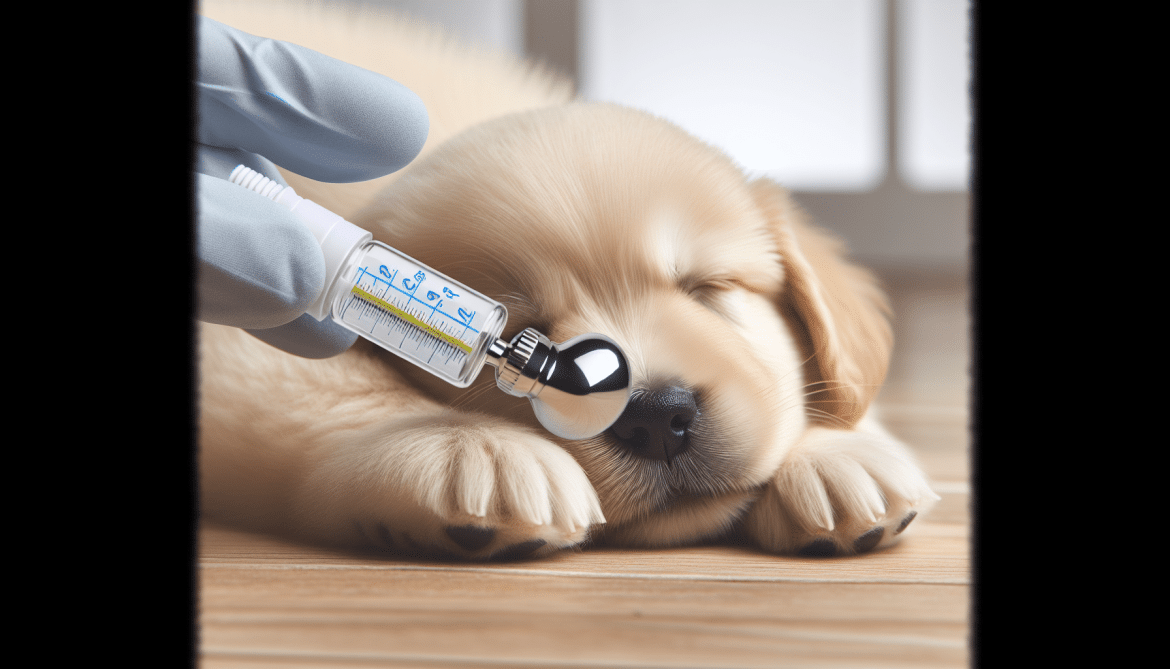Have you ever noticed that your adorable little puppy sounds congested when they're peacefully snoozing away? It may have left you wondering why this happens and if it's something to be concerned about. Well, fear not! In this article, we will explore the reasons behind why your puppy may get congested when sleeping and whether or not you should be worried about it. So, grab a cup of tea and get ready to uncover the secrets of your pup's nighttime nasal symphony!
Causes of Congestion in Sleeping Puppies
Congestion in sleeping puppies can be caused by various factors, including respiratory infections, allergies, nasal blockage, reverse sneezing, and teething. Understanding these causes is essential in order to effectively prevent and treat congestion in our furry friends.
Respiratory Infections
Respiratory infections can contribute to congestion in sleeping puppies. Common types of infections include kennel cough, bronchitis, and pneumonia. These infections are typically caused by viruses or bacteria and can lead to symptoms such as coughing, sneezing, nasal discharge, and congestion.
If your puppy is experiencing congestion due to a respiratory infection, it is crucial to consult a veterinarian for proper diagnosis and treatment. Treatment options may include antibiotics, antiviral medication, cough suppressants, and supportive care to alleviate symptoms and promote healing.

This image is property of images.pexels.com.
Allergies
Allergies can also play a role in causing congestion in sleeping puppies. Just like humans, puppies can develop allergies to various allergens such as pollen, dust mites, mold, and certain foods. Allergic reactions may manifest as nasal congestion, sneezing, itching, watery eyes, and skin irritation.
Identifying the specific allergen causing the congestion is important in managing allergies in puppies. Your veterinarian may recommend allergen testing or an elimination diet to pinpoint the allergens triggering the symptoms. Once the allergens are identified, avoiding exposure to them becomes key. This can be achieved by keeping the puppy's living environment clean, using hypoallergenic bedding and cleaning products, and minimizing exposure to potential irritants.
Nasal Blockage
Nasal blockage is another possible cause of congestion in sleeping puppies. It can occur when the nasal passages are obstructed by foreign objects, mucus, or swollen tissues. Common causes of nasal blockage include respiratory infections, allergies, nasal polyps, and even tumors.
If you suspect that your puppy has a nasal blockage, it is important to look out for signs such as noisy breathing, snoring, difficulty breathing through the nose, and discharge from one or both nostrils. In some cases, gently clearing the blockage can provide relief. However, if the nasal blockage persists or worsens, it is crucial to consult a veterinarian who can assess the situation and recommend appropriate treatment options, which may include medication or surgery.

This image is property of images.pexels.com.
Reverse Sneezing
Reverse sneezing is a peculiar behavior that can also lead to congestion in sleeping puppies. It is a reflexive action in which the puppy inhales rapidly and forcefully through the nose, causing a distinct snorting sound. While reverse sneezing is generally harmless, it can sometimes result in congestion and temporary difficulty breathing.
Understanding the triggers of reverse sneezing is essential for managing congestion in sleeping puppies. Common triggers include excitement, irritants in the air, pulling on the leash, or even changes in temperature. If your puppy experiences reverse sneezing, gently massaging their throat or softly blowing on their nose can help alleviate the symptoms. However, if the reverse sneezing becomes persistent or severe, it is advisable to seek veterinary advice.
Teething
Teething, a normal process in puppies, can also contribute to congestion during sleep. As puppies grow and develop, their baby teeth start to fall out to make way for their permanent teeth. This process can cause some discomfort and inflammation in the gums, leading to congestion and nasal discharge.
To alleviate congestion during teething, there are several tips you can follow. Providing appropriate chew toys can help soothe your puppy's gums and alleviate the need to chew on objects that may irritate the respiratory system. Additionally, maintaining good oral hygiene by brushing your puppy's teeth regularly can help reduce any potential infection or inflammation that may contribute to congestion.

This image is property of images.pexels.com.
When to Consult a Veterinarian
While congestion in sleeping puppies is often mild and temporary, there are instances when consulting a veterinarian is necessary. If your puppy's congestion persists or becomes severe, it is important to seek professional advice. Additionally, if the congestion is accompanied by other concerning symptoms such as difficulty breathing, lethargy, loss of appetite, or a persistent cough, prompt veterinary care is crucial.
A veterinarian can conduct a thorough examination and provide a proper diagnosis. They may recommend additional tests such as X-rays or blood work to further evaluate the underlying cause of the congestion. Once a diagnosis is made, appropriate treatment options can be discussed, ensuring the best possible care for your furry friend.
Preventing Congestion in Sleeping Puppies
Preventing congestion in sleeping puppies involves proactive measures to minimize the risk of respiratory issues. Maintaining a clean environment is crucial, as it reduces the presence of irritants that can lead to congestion. Regularly cleaning bedding, vacuuming the living area, and keeping the air quality in check can significantly reduce potential triggers.
Furthermore, avoiding exposure to known irritants is essential in preventing congestion in sleeping puppies. This can include keeping them away from smoke, strong chemicals, and other airborne irritants. It is also important to establish a routine of regular veterinary check-ups to monitor your puppy's respiratory health and address any potential concerns at an early stage.
Home Remedies for Mild Congestion
For mild congestion in sleeping puppies, there are several home remedies that can provide relief. Steam therapy is a simple and effective method where you can expose your puppy to steam from a warm shower or use a humidifier in their sleeping area. This helps to moisten and loosen any mucus present, making it easier for your puppy to breathe.
Humidifiers can be particularly helpful in maintaining optimal humidity levels, preventing dry air from irritating your puppy's respiratory system. Adding a few drops of nasal saline solution can also provide relief by moistening the nasal passages and helping to clear congestion.
Conclusion
Congestion in sleeping puppies can be caused by various factors, including respiratory infections, allergies, nasal blockages, reverse sneezing, and teething. Understanding the underlying causes and implementing appropriate prevention and treatment measures are essential to ensure the health and well-being of our furry companions. By maintaining a clean environment, avoiding exposure to irritants, and seeking veterinary care when necessary, we can help alleviate congestion and provide a comfortable sleeping environment for our puppies.


